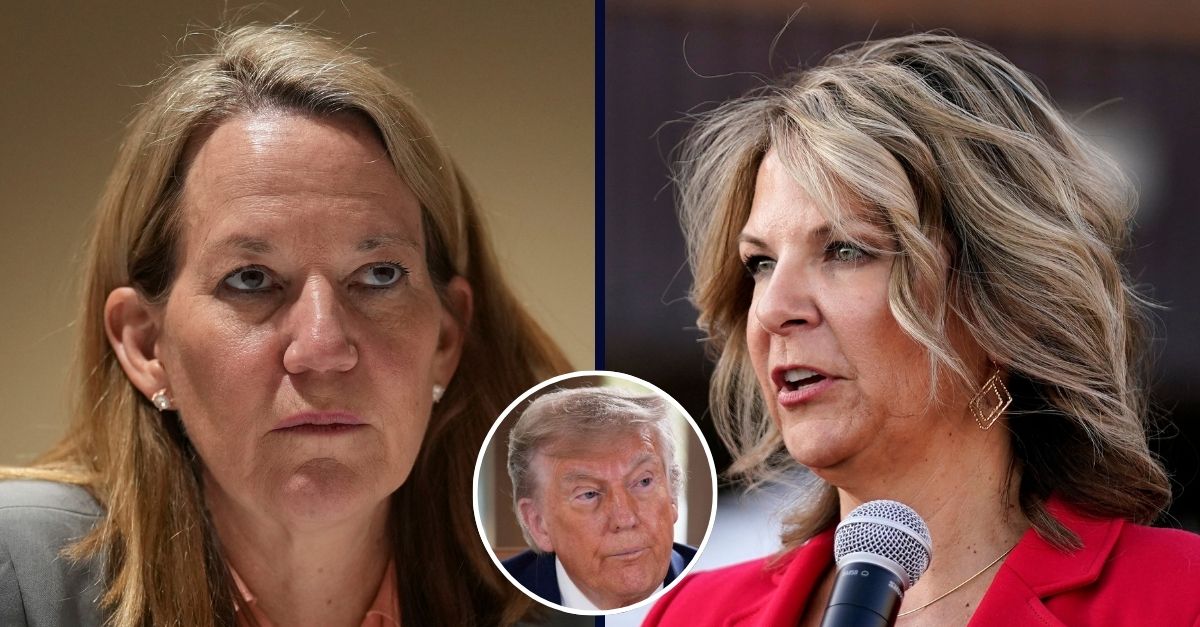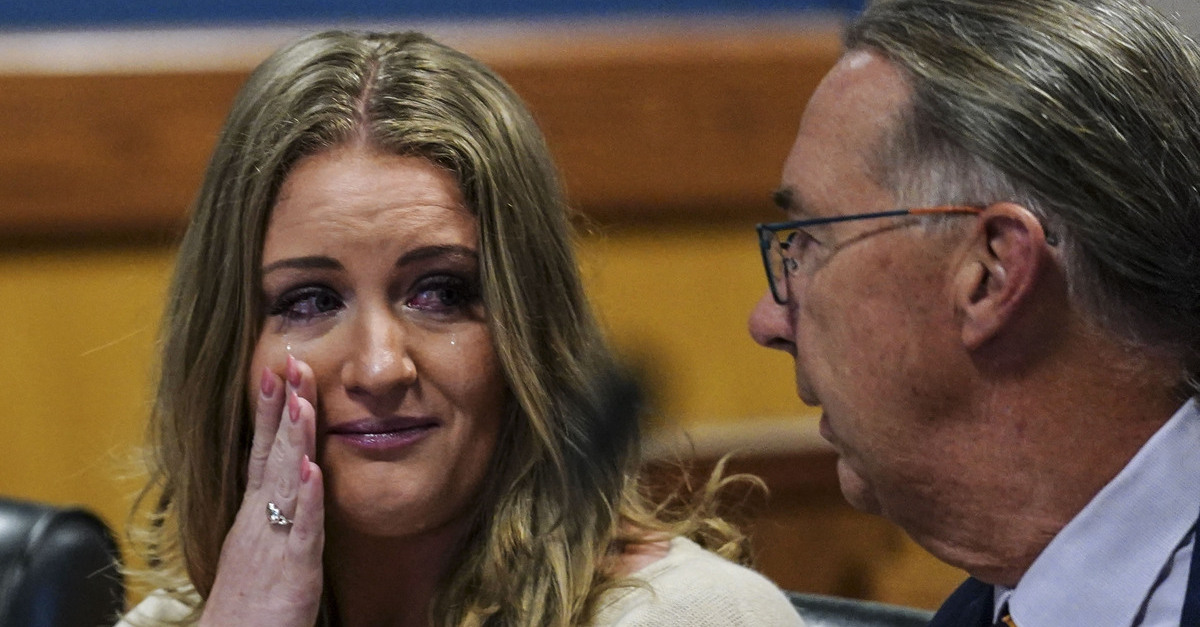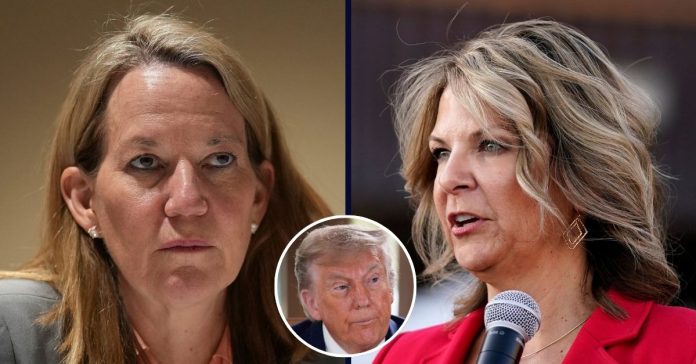
Left: Arizona Attorney General Kris Mayes pauses during an interview with The Associated Press, Thursday, Nov. 21, 2024, in Philadelphia. (AP Photo/Matt Slocum). Right: Dr. Kelli Ward, then-chair of the Arizona Republican Party, holds a press conference at the Maricopa County Elections Department on Wednesday, Nov. 18, 2020, in Phoenix. (AP Photo/Ross D. Franklin). Inset: President Donald Trump participates in a session of the G7 Summit, Monday, June 16, 2025, in Kananaskis, Canada. (AP Photo/Mark Schiefelbein).
An Arizona appeals court has declined to hear a petition from state Attorney General Kris Mayes seeking to revive the indictment against 18 “fake electors” who claimed President Donald Trump won the state in the 2020 election.
In a terse Monday ruling from the three-judge panel, Chief Judge Kent Cattani wrote that the court “declines to accept jurisdiction” of her appeal based on its own “discretion.”
In April 2024, an Arizona grand jury indicted 18 people for allegedly using so-called “fake electors” to fraudulently certify Trump”s win in the state over his challenger, Joe Biden. Among those indicted were high-profile names, including Rudy Giuliani, Mark Meadows, and then-Arizona GOP Chairwoman Kelli Ward.
Love true crime? Sign up for our newsletter, The Law&Crime Docket, to get the latest real-life crime stories delivered right to your inbox.
However, the case against them hit a roadblock when Maricopa County Superior Court Judge Sam Myers found that prosecutors had not shared the full text of the Electoral Count Act with the grand jury before the indictment. The legislation stipulates how electoral votes in a presidential election should be counted.
The judge’s decision meant the attorney general either had to convene a new grand jury or appeal. She chose the latter option, which led to Monday’s ruling. Now, she finds herself in a similar position: get a new grand jury together or appeal the case — this time, to the Arizona Supreme Court.
But Mayes is also in the midst of a reelection battle. And her adversaries were quick to celebrate her petition’s defeat.
“Arizona families deserve an Attorney General who prosecutes criminals, not political opponents,” current Arizona GOP Chairwoman Gina Swoboda said. “Five years later, Kris Mayes is still fixated on 2020 while violent crime, fentanyl trafficking, and border chaos threaten our communities every single day. This obsession is not justice – it’s politics.”
“It’s time for Kris Mayes to move on and put Arizona first,” Swoboda added.
Mayes has denied any partisan motivation, with her office saying last year that the case “is rooted solely in pursuing justice and upholding the rule of law.”
The “fake electors” case was not without its share of drama, as it continued against the backdrop of a new presidential campaign and election last year.
One indicted woman, Republican activist Lorraine Pellegrino, pleaded guilty to a single misdemeanor charge of filing a false instrument. She said she advanced phony certificates declaring Trump won because she wanted to spend her “golden years becoming more active in the political process.”

Jenna Ellis speaks with her attorney Franklin Hogue after Ellis pleaded guilty to a felony count of aiding and abetting false statements and writings, Oct. 24, 2023 (AP Photo/John Bazemore, Pool, File).
Another woman, former Trump campaign attorney Jenna Ellis, agreed to cooperate against other defendants in the “fake electors” case.
Months later, a defendant in the case filed a motion to disqualify then-Maricopa County Superior Court Judge Bruce Cohen, arguing he had an anti-Trump bias.
Cohen ended up recusing himself from the case, and Myers took his place, deciding that the indictment, as it was constructed, could not move forward.
The majority of those indicted in the state’s “fake electors” case have maintained their innocence and pleaded not guilty. Other states have filed similar charges against people for allegedly trying to overturn the 2020 election, including Georgia, where Trump himself was charged. That case has been left largely in limbo after Trump’s election win last November.
Law&Crime has reached out to the Arizona Attorney General’s Office for comment.

